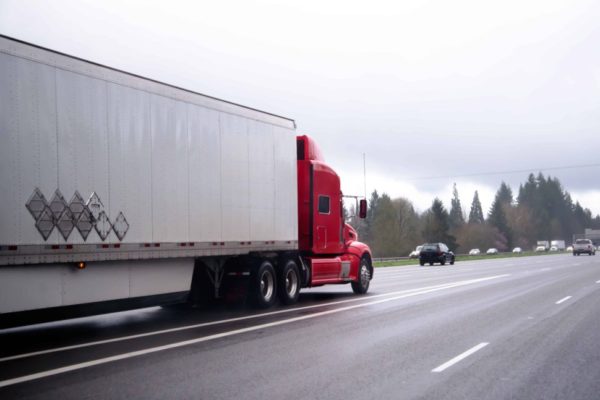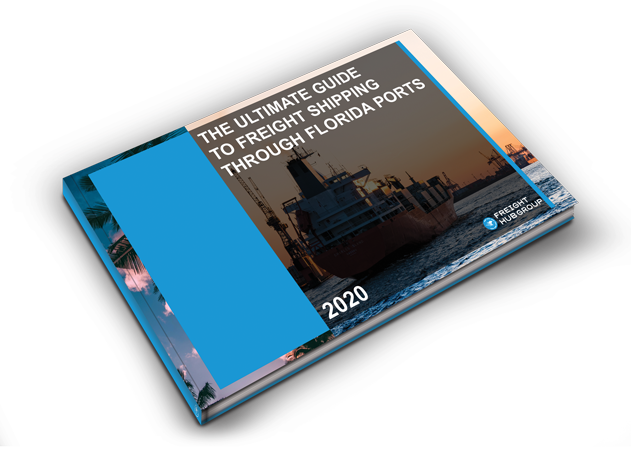Every day, countless goods crisscross the globe, moving from producers to consumers in a constant ebb and flow. This vast, intricate dance is no simple feat – it requires the deft orchestration of numerous moving parts, each playing a crucial role in a larger symphony. One of the most significant players in this grand composition is the freight forwarder.
Acting as the middlemen in the shipping industry, freight forwarders are essential linchpins that keep the global supply chain spinning smoothly. They are the unsung heroes of global trade, connecting markets, navigating complex logistics, and overcoming potential hurdles to ensure goods reach their destinations safely and efficiently. But not all freight forwarders are the same. Each specializes in different aspects of the shipping process, uses different modes of transportation, and offers unique services to cater to a wide array of shipping needs.
From domestic movers to international shippers, from air freight experts to sea freight specialists, freight forwarders come in many forms. In this comprehensive guide, we will shed light on these various types of freight forwarders. We will explore their unique roles within the global supply chain, delve into their areas of expertise, and examine how they tackle the myriad challenges of global logistics. Whether you’re an entrepreneur looking to break into international markets, a logistics professional seeking to deepen your knowledge, or a curious reader with an interest in global trade, this deep dive into the world of freight forwarding offers invaluable insights. So buckle up and join us as we embark on this enlightening journey through the veins of global commerce, guided by the different types of freight forwarders steering the helm.
Different Types of Freight Forwarders
Freight forwarders are entities that coordinate and organize shipments for corporations or individuals to get goods from the manufacturer or producer to a market, customer, or final point of distribution. They act as an intermediary between the shipper and transportation services, negotiating the best possible price to move the goods along the most economical route by working out various bids and choosing the route that best optimizes speed, cost, and reliability.
There are different types of freight forwarders based on the types of services they offer and the modes of transportation they specialize in. Here are a few examples:
Domestic Freight Forwarders
They specialize in arranging shipping on items that are being shipped within the same country. They have extensive knowledge of their country’s regulations and the most efficient inland routes.
- Pros: They specialize in domestic transportation and know the local regulations, culture, and language. Domestic freight forwarders can often provide cost-effective and time-efficient logistics solutions within a particular country.
- Cons: Their expertise is limited to a specific country. For international shipping, businesses may need to engage an international freight forwarder.
International Freight Forwarders
They handle international shipping. They are familiar with the regulations, the carrier requirements, and the documentation involved in shipping goods between countries. They can manage customs clearance and other complex international shipping procedures.
- Pros: They have extensive knowledge and experience with international customs, documentation, and global shipping routes. International freight forwarders often have robust networks across multiple countries, allowing for efficient, reliable international shipping.
- Cons: They may not have as detailed knowledge of domestic logistics as domestic freight forwarders. Also, international shipping generally involves higher costs and more complex procedures.
Full-Service Freight Forwarders
They offer comprehensive services including tracking inland transportation, preparation of shipping and export documents, warehousing, booking cargo space, negotiating freight charges, freight consolidation, cargo insurance, and filing insurance claims.
- Pros: They provide comprehensive logistics solutions, from documentation and customs clearance to warehousing and insurance. Full-service freight forwarders can streamline the entire shipping process, making it more convenient for businesses.
- Cons: Their services may be more expensive than those of specialized freight forwarders. Some businesses might not require all the services they provide, resulting in unnecessary costs.
Air Freight Forwarders
These forwarders specialize in transporting goods by air. They have detailed knowledge of air freight operations, airport procedures, and regulations related to air freight.
- Pros: Air freight is the fastest mode of transportation, ideal for time-sensitive shipments. Air freight forwarders have the expertise to handle the unique requirements of air shipping, including airport procedures and safety regulations.
- Cons: Air freight is often more expensive than sea or land freight. It’s also subject to weight and size limitations, making it unsuitable for certain types of cargo.
Sea/Ocean Freight Forwarders
They specialize in shipping goods by sea. They understand the many regulations and customs laws for different countries and can handle all the logistics necessary for sea freight.
- Pros: Sea freight is cost-effective for transporting large, heavy goods, particularly for long-distance shipping. Sea freight forwarders have in-depth knowledge of maritime regulations, shipping routes, and port operations.
- Cons: Sea freight is slower than air freight, making it less suitable for urgent shipments. It’s also more susceptible to delays due to weather conditions, port congestion, or other unforeseen circumstances.
Road Freight Forwarders
These forwarders focus on transporting goods by road. This can involve everything from the legal requirements for road freight to route planning and the hiring of trucking companies.
- Pros: Road freight provides the most direct access to the customer’s doorstep, allowing for door-to-door delivery. Road freight forwarders can efficiently manage trucking logistics and route planning.
- Cons: Road freight is subject to traffic conditions, road regulations, and infrastructure quality. It’s also not practical for long-distance or international shipping.
Rail Freight Forwarders
These forwarders manage the transport of goods by rail. This may involve navigating rail systems, scheduling, and arranging for goods to be picked up and delivered.
- Pros: Rail freight can transport large volumes of goods efficiently and is less affected by weather conditions compared to sea or air freight. Rail freight forwarders can effectively navigate the rail system and coordinate the loading and unloading of goods.
- Cons: Rail freight requires a terminal-to-terminal model, which means additional trucking services might be needed for door-to-door delivery. Rail networks may also not be available or efficient in some regions.
Multimodal Freight Forwarders
These forwarders use multiple modes of transport to get goods from their origin to their destination. This might involve using a combination of sea, air, and land transportation. This type of freight forwarder is often used for international shipping.
- Pros: They provide flexible logistics solutions by combining different modes of transportation. Multimodal freight forwarders can optimize routes based on cost, speed, and reliability, making them a versatile choice for many businesses.
- Cons: Coordinating multiple modes of transport can be complex and potentially more prone to logistical issues. These services may also be more expensive due to the higher level of coordination required.
Project Freight Forwarders
They handle large, heavy, high value or a critical pieces of equipment. This includes shipments for industries such as Oil & Gas, Mining, Wind Power and Infrastructure projects.
- Pros: They specialize in handling large, high-value, or critical equipment for specific industries. Project freight forwarders can manage complex logistics and ensure the safe and efficient transport of specialized cargo.
- Cons: Their services are highly specialized, making them potentially less cost-effective for standard freight needs. They may also be less readily available than other types of freight forwarders.
E-commerce Freight Forwarders (e-Forwarders)
They specialize in the logistics of e-commerce businesses. They handle international and domestic shipping for online businesses, including managing returns and exchanges.
- Pros: They cater specifically to the needs of e-commerce businesses, handling international and domestic shipping, as well as returns and exchanges. e-Forwarders can help online businesses expand their market reach and improve customer satisfaction.
- Cons: They may not have the capabilities or networks to handle large-volume or non-standard shipments. Their services may also be less suitable for businesses that operate primarily in physical markets.
Future Possibilities of Freight Forwarding
- Digital Transformation: The freight forwarding industry is undergoing a significant digital transformation. The future will likely see a more extensive use of technology in various forms, from automated booking systems and real-time tracking to AI-powered route optimization and predictive analytics. Digital freight forwarders or “FreightTech” companies are already revolutionizing the industry, providing more transparent, efficient, and customer-centric services.
- Sustainability: As businesses worldwide strive to reduce their carbon footprints, freight forwarders will play a key role in enabling sustainable logistics. This might involve optimizing routes for lower fuel consumption, promoting eco-friendly modes of transport, or even investing in electric or hydrogen-powered trucks and cargo ships.
- E-commerce Growth: The e-commerce boom is set to continue, and with it, the demand for e-commerce freight forwarders will likely grow. They will play an increasingly important role in enabling businesses to reach customers globally, providing solutions for international shipping, customs clearance, and returns management.
- Blockchain Technology: Blockchain could revolutionize the freight forwarding industry by enhancing transparency, security, and efficiency. It could be used for secure document transfer, real-time cargo tracking, and smart contracts, potentially reducing errors and delays.
- Risk Management: With an increasingly complex global supply chain and heightened uncertainties due to factors like climate change and political instabilities, freight forwarders of the future will need to be adept at risk management. This could involve comprehensive contingency planning, insuring against potential risks, and closely monitoring global developments.
- Internet of Things (IoT): IoT devices could play a significant role in the future of freight forwarding. Smart containers with real-time tracking, temperature control, and automatic alerts for any anomalies could become the norm, ensuring safer and more efficient transportation of goods.
- Customized Service: As businesses continue to diversify and the demand for personalized service increases, freight forwarders might need to provide more tailored solutions. This could involve specialized handling for specific types of goods, flexible delivery options, or bespoke logistics solutions for different industries.
- Collaboration and Integration: The future might see more collaboration among freight forwarders, carriers, and shippers, enabled by digital platforms that facilitate information sharing and coordination. This could lead to more integrated and efficient supply chains.
In essence, the future of freight forwarding is likely to be shaped by technological advancements, sustainability concerns, and changing customer expectations. As these trends evolve, so will the roles and responsibilities of freight forwarders in the global supply chain.
In Closing
The freight forwarding industry is an indispensable part of the global supply chain, providing a variety of specialized services that ensure the efficient and reliable transportation of goods. Freight forwarders come in many forms, each with its own unique set of skills and expertise.
Domestic freight forwarders master local logistics, while international ones have a global reach. Full-service freight forwarders offer comprehensive logistics solutions, while others specialize in specific modes of transport like air, sea, road, or rail. Multimodal freight forwarders combine these modes for optimal results, while project freight forwarders handle complex, large-scale projects, and e-commerce freight forwarders cater to the burgeoning online retail sector.
Looking forward, the freight forwarding industry will continue to evolve. The rise of digital technology, the growing emphasis on sustainability, and the continued expansion of e-commerce are all reshaping the landscape. Advances in technologies such as AI, blockchain, and IoT will bring about enhanced efficiency, security, and transparency, while the demand for more personalized, customer-centric services will continue to grow.
In the face of these changes, freight forwarders will need to adapt and innovate. Those that embrace digital transformation, commit to sustainability, and strive to meet the changing needs of their customers are likely to thrive in this dynamic and evolving industry. The future of freight forwarding promises to be an exciting journey, filled with opportunities and challenges alike.







